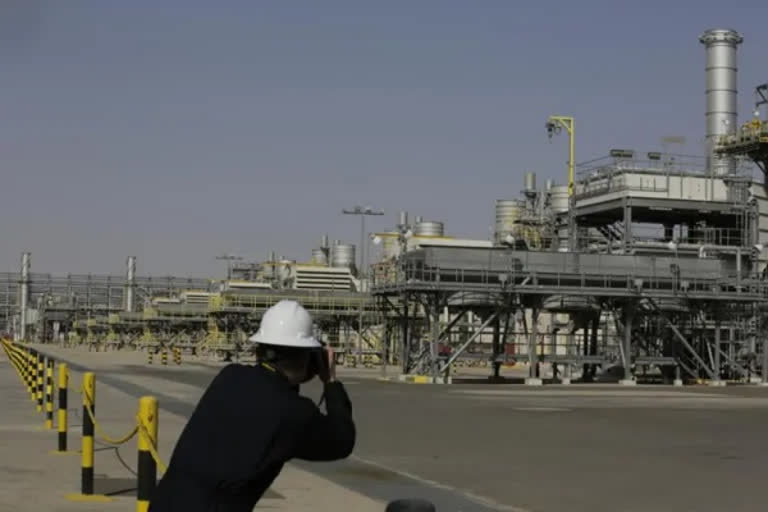Dubai: Yemen's Houthi rebels attacked an oil depot Friday in the Saudi city of Jiddah ahead of a Formula One race there, their highest-profile assault yet that threatened to disrupt the upcoming grand prix. The attack targeted the same fuel depot that the Houthis had attacked in recent days, the North Jiddah Bulk Plant sits just southeast of the city's international airport, a crucial hub for Muslim pilgrims heading to Mecca. Videos of the blaze corresponded to known geographic features around the plant. The Saudi Arabian Oil Co, known as Saudi Aramco, did not immediately respond to a request for comment. Saudi state TV only acknowledged a hostile operation targeting the depot, without elaborating. The attacks came as Saudi Arabia still leads a coalition battling the Iran-backed Houthis, who seized Yemen's capital of Sanaa in September 2014. The kingdom, which entered the war in Yemen in 2015, has been internationally criticized for its airstrikes killing that have killed scores of civilians something the Houthis point to as they launch drones, missiles and mortars into the kingdom.
An Associated Press photojournalist covering practice laps at the F1 track in Jiddah saw the smoke rising in the distance to the east, just after 5:40 pm. As the flames rose, the tops of the tanks of the bulk plant were clearly visible some 11.5 km (7 miles) away. Drivers raced on into the evening even as the fire burned and authorities offered no explanation for the blaze. The second-ever Saudi Arabian Grand Prix in Jiddah is taking place on Sunday, though concerns had been raised by some over the recent attacks targeting the kingdom. The F1 said in a statement: The position at the moment is that we are waiting for further information from the authorities on what has happened. The F1 did not elaborate. The al-Masirah satellite news channel run by Yemen's Houthi rebels later claimed they had attacked an Aramco facility in Jiddah, along with other targets in Riyadh and elsewhere. The report provided no further details. Meanwhile, Saudi state TV also acknowledged attacks in the town of Dhahran targeting water tanks that damaged vehicles and homes. Another attack targeted an electrical substation in an area of southwestern Saudi Arabia near the Yemeni border, state TV said.
Also read: Saudi Arabia says it's not responsible for high oil prices
The North Jiddah Bulk Plant stores diesel, gasoline and jet fuel for use in Jiddah, the kingdom's second-largest city. It accounts for over a quarter of all of Saudi Arabia's supplies and also supplies fuel crucial to running a regional desalination plant. The Houthis have twice targeted the North Jiddah plant with cruise missiles. One attack came in November 2020. The last came on Sunday as part of a wider barrage by the Houthis. At the time of the 2020 attack, the targeted tank, which has a capacity of 500,000 barrels, held diesel fuel, according to a recent report by a UN panel of experts examining Yemen's war. Repairing it after the last attack cost Aramco some $1.5 million. The UN experts described the facility as a civilian target, which the Houthis should have avoided after the 2020 attack. While the facility also supplies the Saudi military with petroleum products, it is mostly supplying civilian customers, the panel said.
If the plant had been out of service for a significant period, the impact on the kingdom's economy as well as on the welfare of the residents of the Western region would likely have been significant. Cruise missiles and drones remain difficult to defend against, though the US recently sent a significant number of Patriot anti-missile interceptors to Saudi Arabia to resupply the kingdom amid the Houthi attacks. In September, the AP reported that the US had removed its own Patriot and THAAD defence systems from Prince Sultan Air Base outside of Riyadh. The attacks have renewed questions about the kingdom's ability to defend itself from Houthi fire as a yearslong war in the Arab world's poorest country rages on with no end in sight. It also comes as Saudi Arabia issued an unusually stark warning that it is unable to guarantee its oil production won't be affected by further attacks which could push global energy prices even higher amid Russia's war on Ukraine.
AP



